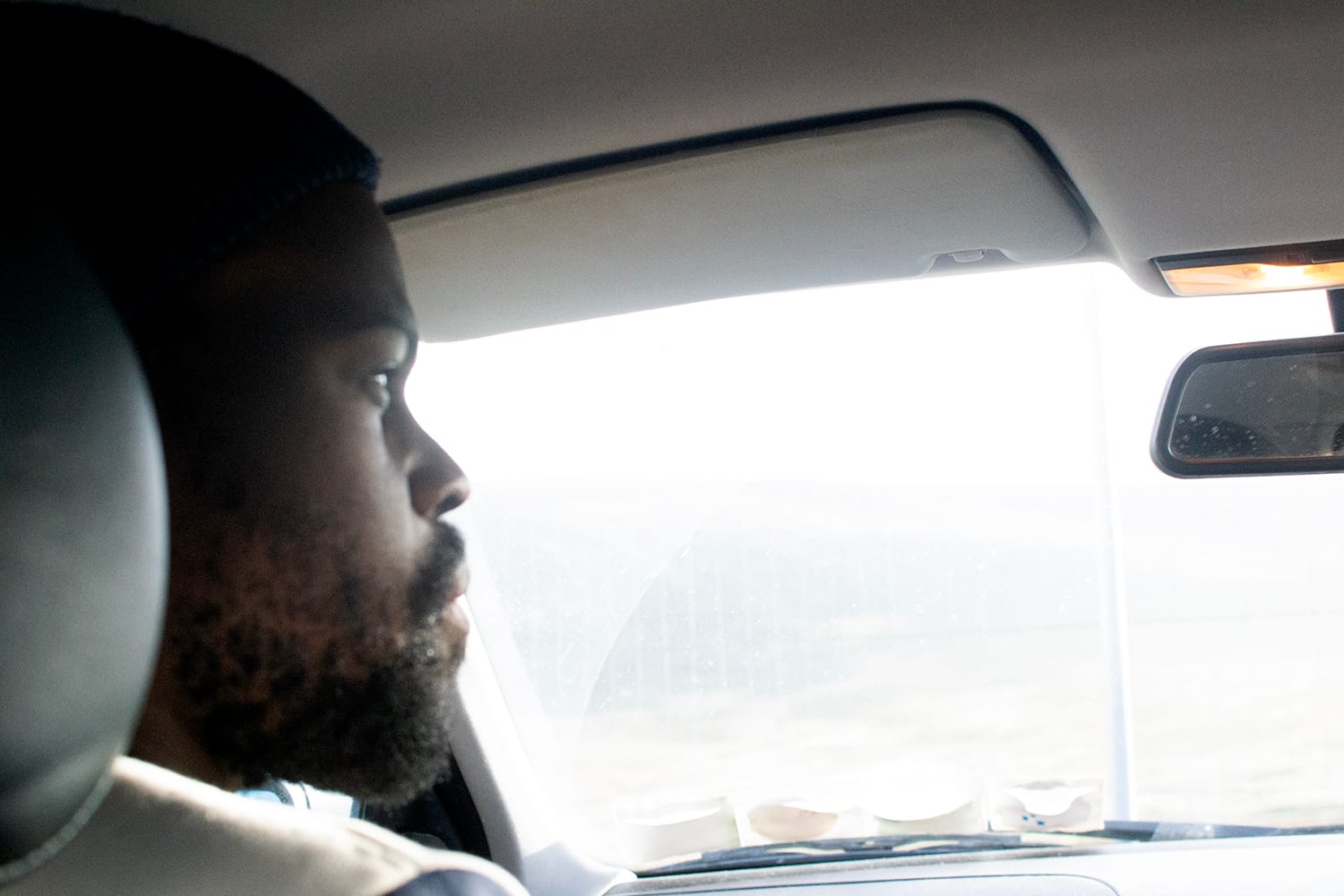What’s the best way to tell area residents about plans for a new asylum shelter nearby?
The government should tell communities directly about plans for new asylum shelters, some activists and politicians say.
They now have to show their papers to enter – despite a judge ruling that a similar measure was overly intrusive a decade ago.

Bulelani Mfaco and a cluster of other men had to stand and wait outside Kilbride Army Camp in Co. Wicklow last week to be let in, says Mfaco.
The wind hissed and they shivered, he said on Saturday morning, sitting in a car on the grounds of the old barracks.
Mfaco and the other men live in the camp. They weren’t visiting.
But since a fire in late November, staff have asked them to show their asylum cards or, for those with papers like Mfaco, their residence permits – or at least stop and check in to be allowed back to their beds, said Mfaco.
Even though, in November 2014, Mr Justice Colm Mac Eochaidh ruled that making asylum seekers sign in each day to enter shelters was intrusive and amounted to “an interference with private life”.
A spokesperson for the Department of Children and Equality said that supply of beds is tight and allocated with the expectation that they’re used every day.
Managers check attendance to make sure all capacity is fully used, they said. “The Department is focussed on ensuring all accommodation is used as efficiently as possible.”
A decade ago, in the case before Mr Justice Mac Eochaidh, the Department of Justice also justified daily sign-ins as needed to manage capacity.
But staff could note someone’s presence and check beds without daily sign-ins, wrote Mr Justice Mac Eochaidh in his judgment. That would be less intrusive, he said, and a shelter is an asylum seeker’s home.
Mfaco says that since they’re living in army barracks, daily sign-ins only add a more institutionalised feeling to the only home they have for now.
“It makes you feel institutionalised if you have to engage with bureaucracy every time you want to get in,” he said, sitting on the grounds of the army camp, just a stone’s throw from an old rusty missile launcher.
Mfaco, who is a member of the Movement of Asylum Seekers in Ireland (MASI), shares a room with more than 20 other men, he said.
He has lived there since April as he tries to move on with his life and out of the system, he said. His application for social housing is still being processed.
Mfaco’s room has grey walls and bunk beds, a photograph shows. Suitcases rest on the ground, and clothes are hung on the walls and from the beds.
A small table with two chairs on each side sits right in the middle of the room. Traces of black mould edge the ceiling.
The storm had cut the power supply at the barracks on Saturday, and residents couldn’t shower, Mfaco said.
Another photo from Saturday shows shower heads in an open space on profoundly stained and blackened walls.

Soldiers of the Irish Defence Forces still train nearby.
On Saturday morning, a man in an army uniform strolled by towards a barricaded ground with an Irish flag fluttering above it as Mfaco stood outside the old barracks.
Muireann Ní Raghallaigh, associate professor of Social Work at University College Dublin, says that, generally speaking, there’s long-standing evidence showing that staff at asylum centres have been too involved in the lives of residents.
“The vast majority of such staff do not have sufficient relevant training to properly support international protection applicants,” she said.
On top of that, residents sometimes face isolation in remote areas while navigating life in cramped quarters, she said.
All these factors lead to “the imposition of rules that are focused on centres running smoothly to the detriment of the human rights and autonomy” of asylum seekers, Ní Raghallaigh said.
Mfaco, his eyes red and wearing navy blue pyjama bottoms, said he works night shifts in Dublin.
The camp’s remoteness adds to the stress, he said. “We’re in the middle of nowhere,” said Mfaco, gesturing to a barricaded field and a luminous sky.
He often has to taxi from Tallaght to the old barracks, which costs him around €20 every time, he said.
Mfaco says when he lived in another centre, in Knockalisheen in Co. Clare, he didn’t have to do daily sign-ins. Not all asylum centres do it.
It’s unclear why some do, and some don’t. Mfaco says that most people want to hold on to their beds because it’s so difficult to move out. “Where are we gonna go?”
Fiona Hurley, the CEO of migrants’ rights non-profit NASC, says it concerns her that staff at Kilbride Army Camp are asking residents to sign in and out 10 years after the High Court ruled the practice was in breach of privacy rights.
“The state is manifestly failing in its legal obligations to provide adequate reception conditions for international protection applicants,” she said.
In response to Swedish officials’ ad-hoc query submitted in October of last year through the European Migration Network, the Irish government had said residents of its asylum centres lose their beds if they’re absent from a shelter “for three nights without explanation”.
“And if an individual stays away without explanation, this is taking as an indication that the individual no longer requires accommodation,” they wrote.
Sign-ins weren’t demanded before the fire, said Mfaco.
He and his roommates don’t know how the fire started, Mfaco said. Residents saw lights fluttering and a fire truck shortly after.
“The news reports said in the canteen, but it wasn’t the canteen,” he said, pointing to a building situated a little further away from the camp.

Residents were moved to a shelter in Clondalkin for two days, and when they came back, some of their stuff was missing, he said.
“They told us to take things for a few days so we left most of our belongings behind,” he said.
Mfaco and his roommates had all chipped in for a microwave for the room, he said. That was gone, Mfaco said. A hot plate, a kettle, and a stove were also missing,
Staff gave those back eventually but had taken them without asking, Mfaco says.
Someone’s air fryer is still missing, too, he said, on Saturday.
People try to cook for themselves because some are sick and the camp’s food doesn’t suit them or it’s just not what they grew up with and are used to, he says.
A spokesperson for the Department of Children and Equality didn’t explicitly say whether people’s belongings were taken but said it had spoken to staff there.
“And we are satisfied that a search of residents’ belongings was not carried out,” they said.
Hurley, the CEO of NASC, says Kilbride Army Camp does save men from sleeping rough. But “this should not be the minimum standard we hold the state to”, she said.
If cooking in the rooms isn’t allowed, that should be communicated to residents directly, Hurley said.
And they can be asked to hand over their cooking appliances “without fear of repercussion”, she said.
Mfaco says the daily sign-ins and how they can find things taken without knowledge or consent, on top of overcrowding and isolation, made him more aware of the fact that they have no privacy, he said.
From each other and from staff, he said.
Get our latest headlines in one of them, and recommendations for things to do in Dublin in the other.